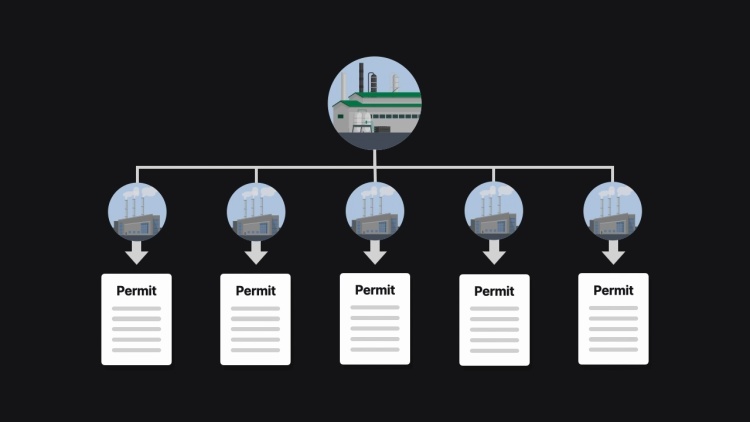Chevron U.S.A., Inc. v. Natural Resources Defense Council, Inc.
United States Supreme Court
467 U.S. 837 (1984)
- Written by Susie Cowen, JD
Facts
The 1977 Amendments to the Clean Air Act (CAA) required polluters in certain areas to obtain a permit from a state regulator before building any new or modified stationary sources of air pollution. The state regulator could grant the permit only if the polluter met specific requirements regarding the abatement of new pollution. The Environmental Protection Agency (EPA) promulgated a rule interpreting the term “stationary source” to include what the agency called a “bubble policy.” Under this policy, an existing plant containing several pollution-emitting devices could install or modify one piece of equipment without a permit if the alteration did not increase the total emissions from the plant. The Natural Resources Defense Council (NRDC) (plaintiff) challenged the EPA’s interpretation of the word “source.” Specifically, the NRDC argued that the word referred to each individual pollution-emitting piece of equipment, which meant that a plant would need to obtain a permit any time it created a new source of pollution or modified an existing source if the effect were to increase the pollution from the source. Finding that this interpretation best served the goals of the CAA, the court of appeals agreed with the NRDC. In reaching this decision, the court recognized that Congress had not expressed an intent regarding the applicability of the bubble concept to the permit program. The United States Supreme Court granted certiorari to review the appellate court’s decision.
Rule of Law
Issue
Holding and Reasoning (Stevens, J.)
What to do next…
Here's why 903,000 law students have relied on our case briefs:
- Written by law professors and practitioners, not other law students. 47,100 briefs, keyed to 995 casebooks. Top-notch customer support.
- The right amount of information, includes the facts, issues, rule of law, holding and reasoning, and any concurrences and dissents.
- Access in your classes, works on your mobile and tablet. Massive library of related video lessons and high quality multiple-choice questions.
- Easy to use, uniform format for every case brief. Written in plain English, not in legalese. Our briefs summarize and simplify; they don’t just repeat the court’s language.





